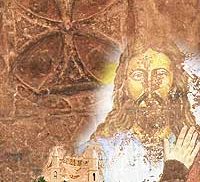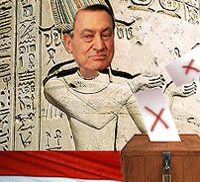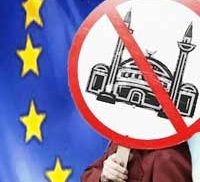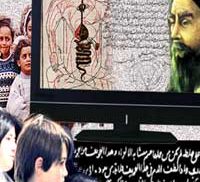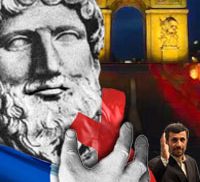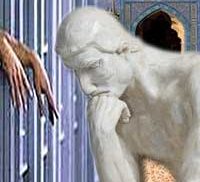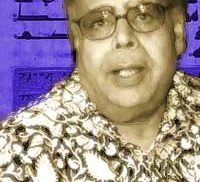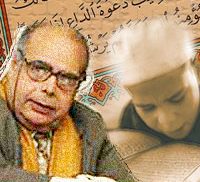This dossier stems from the debate sparked by Elizabeth Suzanne Kassab’s article—which opens this collection—on the transformation of the Arab intellectual scene after 2011. Her notion of a “new contemporary” in Arab thought prompted a series of contributions that do not aim to offer solutions, but rather to raise new questions, probe unresolved issues, and put forward critical perspectives. Bringing together Kassab’s essay and two related pieces, the dossier explores how Arab thought is redefining itself in light of the uprisings, the failures of political transitions, and the moral and intellectual rupture marked by Gaza.
Dossiers
- After the violence against Christians in Baghdad came the attack in Alexandria against the Copts. The Middle East is becoming increasingly dangerous for minorities (in particular religious minorities) although they are a real cultural and economic treasure, all the more so in societies in which democratic dialectics and pluralism are still an illusion.
- Things went even worse than expected. Recent elections held in Egypt amidst ballot-rigging and political arrests were triumphantly won (in rather a suspicious manner) by President Mubarak’s party, which won fourth-fifths of the seats. Not even one representative of the Muslim Brotherhood was elected and turnout was extremely low. Mubarak has little to fear from external pressure seeing that many (France and Italy) describe him as the leader of a “moderate” Arab state. How long is this lie going to last?
- There is no peace for immigrants. Following a campaign characterised by xenophobic tones, the Swiss have said yes to deporting all foreigners who commit crimes. The new referendum was held a year after the one that resulted in the construction of minarets being banned. Is open society now at risk in Switzerland? ResetDoc posed this question at a conference organized in Zurich and we are publishing here the papers presented (Click here to download the article in the Neue Zürcher Zeitung).
- Technical and scientific progress were once the pride of Arab history. However, as shown in the recent past by relations within the United Nations, they now appear to be only a vague memory. And yet something is moving again. Arab scientists and journalists are attempting to bring science closer to Arab popular culture, not only because the economy needs new brains, but also to remove a dangerous sense of inferiority from society regarding the West. This has resulted in the appearance of exhibitions, festivals and even a reality show on this subject.
- On November 9th Unesco’s Secretary General Irina Bokova announced that World Philosophy Day will no longer be held in Teheran, where the 2010 edition had originally been scheduled, and that not even secondary events will be held in the Iranian capital. All recognition from Unesco has been officially withdrawn. The decision at last ended Unesco’s embarrassment and made Tehran’s isolation even more obvious (Click here to read the Iranian regime’s outraged reaction.) The merit also goes to the debate that resulted from protests from Resetdoc, which started with a letter we sent to the director of Unesco. After receiving much support for our appeal, we opened a webpage dedicated to launching an alternative World Philosophy Day (philosophy4freedom.org). As The New York Times wrote when reporting on our initiative, UNESCO risked «turning its “school of freedom” into a propaganda exercise for a brutal regime.» (See also the articles that The Wall Street Journal, The Guardian, Il Corriere della Sera, Pbs.org (Hamid Dabashi and Binesh Hass) and Insidehighered have written about our protest.)
- Six months ago Iraqi voters defied terrorist bombs and snipers, but such courage has not yet borne fruit and unbelievably Iraq is still without a government. In the meantime, while suicide attacks continue, one citizen out of four lives below the poverty line and the withdrawal of American troops risks rendering the country even less secure, identity issues continue to divide society.
- The date of the World Philosophy Day (21-23 November) is approaching and nothing seems to prevent that this prestigious global appointment will happen to be held in Tehran. Our protest began with a letter sent to the director of UNESCO last January on behalf of the Association. Now, on Monday September 27th, we will hold a meeting in New York in order to further sensitize international public opinion. The UNESCO’s initiative is turning into the opposite of what it should be. Postponing this event in Iran to a future date can be the only way to preserve the universality of its initiative and of its mission.
- After the dossier entitled Remembering Abu Zayd, our tribute to the great Egyptian philospher who died in July continues. These are new contributions from his friends and colleagues.
- With its oil, gas, spies and revolutions, Central Asia has returned to stir the imagination of western observers. This is thanks to Great Game version 2.0, in which the leading players are Russia, the United States and China, this last country appearing to take advantage of the historical rivalry between the first two. All this is also the result of the rising threat of Islamic extremism in the region and a democratic deficit that is made clear to everyone, for example, in Kyrghyzstan, with the bloody revolts of four month ago as well as the recent inter-ethnic clashes.
- The world of culture has sufferend a serious loss. Philosopher Nasr Hamid Abu Zayd, one of the Islamic world’s greatest thinkers and a member of Reset Doc’s Scientific Committee, has died. We remember him with a special issue also presenting once again a number of his publications and interviews in our magazine (Click here to watch his last Resetdoc video-interview.)



